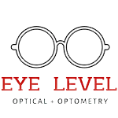
Children’s Eye Health: When Should Your Child Start Wearing Glasses?
Have you noticed your child squinting or struggling to see objects? You’re not alone. According to the American Optometric Association, 1 in 4 school-aged children has vision problems that can affect learning.
Even more concerning, 80% of a child’s learning happens visually. Catching these issues early is crucial for your child’s development. From blurry vision to difficulty reading the board in class, understanding when your child may need glasses can make all the difference in their success.
Are you curious about what signs to watch for? Read on!
The Role of Vision in Child Development
Vision is one of the most critical aspects of early childhood development. Babies develop their eyesight almost immediately after birth, but this sense can take years to mature fully.
Clear vision is essential for nearly every aspect of your child's early learning experiences, from hand-eye coordination to recognizing faces. Children rely on their eyesight as they grow for activities like reading, writing, and playing, which are fundamental for academic success.
When vision issues go unnoticed, they can impact a child's ability to learn and socialize. Detecting vision problems early and addressing them with glasses or other treatments can prevent developmental delays and ensure your child thrives.
Common Vision Problems in Children
Several vision problems can affect children, some of the most common being nearsightedness (myopia), farsightedness (hyperopia), and astigmatism. Myopia affects around 9% of children, making it hard to see distant objects clearly, while hyperopia can make nearby objects appear blurry.
Astigmatism, present in about 10% of children, causes overall blurry vision due to the irregular shape of the eye's cornea. Some children may also develop amblyopia (lazy eye) or strabismus (crossed eyes), which require prompt intervention to prevent further vision loss.
Regular eye exams are vital in detecting these conditions early, as young children may not realize their vision is impaired.
Signs Your Child Might Need Glasses
Several signs may indicate your child needs glasses. If your child is squinting, rubbing their eyes often, or complaining of headaches, these could be signs of vision problems. Difficulty reading, sitting too close to the TV, or covering one eye to see better are red flags.
Some children may have trouble keeping up in school because they can't see the board. Behavior changes, such as irritability or a sudden drop in academic performance, can also be linked to vision issues.
Children may sometimes prefer one eye over the other, signaling potential amblyopia. If you notice any of these symptoms, scheduling an eye exam with an optometrist for a comprehensive assessment is essential. Eye exams are crucial for diagnosing common issues like nearsightedness and spotting more serious conditions early.
Treatment Options for Children Who Need Glasses
Once a vision problem is detected, your optometrist will recommend the best course of treatment based on the specific condition. Glasses are the most common solution, especially for refractive errors like myopia and hyperopia.
Children’s glasses are designed to be durable and lightweight, ensuring they can withstand an active lifestyle. Sometimes, your child might benefit from specialized lenses, such as those with anti-reflective coatings or UV protection. For conditions like amblyopia, patching therapy may be recommended alongside glasses to strengthen the weaker eye.
While contact lenses are generally not recommended for younger children, they may be an option for older kids or teens under careful supervision. Early treatment can make a difference, enabling your child to see clearly and confidently as they grow.
Helping Your Child Adjust to Wearing Glasses
Getting used to wearing glasses can be challenging for some children, but they’ll quickly adapt with patience and encouragement.
Start by ensuring their glasses fit comfortably and aren’t too tight or loose. Letting your child choose their frames can make the experience more exciting and give them a sense of ownership. Encourage your child to wear their glasses consistently, especially during activities where clear vision is crucial, such as reading or playing sports.
If they resist, positive reinforcement can help—praise them when they wear their glasses and gently remind them when they forget. It’s also important to explain the benefits of wearing glasses so they understand how it will improve their daily lives.
Over time, wearing glasses will become second nature, and your child will likely appreciate the difference they make.
The Bottom Line
Your child's vision is crucial to their growth, learning, and daily activities. Recognizing the signs of vision problems and addressing them early can significantly impact their development. Glasses can provide the clarity they need to succeed in and out of the classroom.
Supporting your child through this adjustment period will help them embrace their new glasses confidently. Regular eye exams ensure that their vision remains sharp, allowing them to engage with the world around them fully.
So, get your child’s vision tested and head to Eye Level Optical for state-of-the-art, ophthalmologist-approved glasses!

